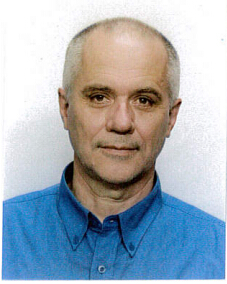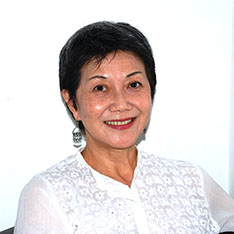 林滿紅 林滿紅
中央研究院近代史研究所研究員
林滿紅,台大學士、碩士、台灣師大博士、哈佛博士,專攻歷史學。曾任日本早稻田大學與京都大學客座教授及中華民國國史館館長,現任中央研究院近代史研究所研究員及台灣師範大學歷史研究所教授。著有專書 China Upside Down: Currency, Society, and Ideologies, 1808-1856 (中譯版:《銀線:十九世紀的世界與中國》)、《晚近史學與兩岸思維》、《臺灣海峽兩岸經濟交流史》(日文版)、《獵巫、叫魂與認同危機:臺灣定位新論》、《茶、糖、樟腦業與臺灣之社會經濟變遷,1860-1895》,及其他中英日韓文論文80餘篇,由貿易、貨幣與政治經濟思想等角度探討全球史中的中國近代史與臺灣近代史。林滿紅的研究在到哈佛學習,尤其是跟Philip A. Kuhn教授學習之後,起了顯著變化。在這之前的社會經濟史研究如《茶、糖、樟腦業與臺灣之社會經濟變遷,1860-1895》或〈清末自產鴉片的進口替代〉較傾向於社會事實的重建。因 Kuhn教授重視社會事實與社會思想間的對話(詳見:《近代中國史研究通訊》,第8期),之後其研究也留意這方面的觀察。“Late Qing Perceptions of Native Opium” 一文及其他鴉片研究描繪1874-1906年間鴉片是毒多於鴉片是藥的觀念越是加強,因為財經對鴉片的倚賴更深,以本國持有鴉片才能自主禁絕這樣的理由,也使本國供應更多鴉片。 China Upside Down: Currency, Society, and Ideologies, 1808-1856 (或《銀線》一書)則在訴說國際市場所造成清朝嘉道年間的銀價飛漲對統治者而言有如脫疆野馬,君權有限的觀念也跟著蓬勃發展。“Taiwan, Hong Kong, and the Pacific, 1895-1945” 及《獵巫、叫魂與認同危機:臺灣定位新論》與台商亞太商貿網絡相關中英日文學術論文各約10篇指出有關臺灣的Chinabound認知與其近百多年來Pacificbound的發展有所分歧,是在臺灣的中華民國國家定位混亂、族群衝突的一個深層根源 。
LIN Man-houng
Senior Research Fellow, Institute of Modern History, Academia Sinica
Man-houng Lin received her Ph.D. in History and East Asian Languages from Harvard University in 1989. Lin has been a Senior Research Fellow at the Institute of Modern History, Academia Sinica since 1990 and Professor at the Department of History, National Taiwan Normal University since 1991. She had been visiting professor at Waseda University in 2001 and Kyoto University in 2004. She also had served as the President of Academia Historica, the Republic of China from 2008 to 2010. Lin’s works, including several monographs and more than 80 articles, were published in English, Chinese, Japanese and Korean languages, covering treaty ports and modern China, late Qing perceptions of native opium and its domestic supply, currency crisis and early nineteenth-century China, Taiwanese merchants’ overseas economic networks built during the Japanese colonial period etc. Those works have put modern Chinese history and modern Taiwan history in a global context. After going to Harvard as a doctoral student under the supervision of Prof. Philip A. Kuhn, Lin’s research approach has undergone significant changes, shifting from the previous orientation to the reconstruction of socio-economic facts, as reflected in her studies like The Tea, Sugar, and Camphor Industries and Taiwan's Socio-Economic Transformation, 1860-1895 and “Import Substitution by Native Opium in late Qing China.” Since Prof. Kuhn stresses the dialogue between social facts and social thought (see No. 8, Newsletter for Chinese Modern History), Lin’s research also took this aspect into account. For examples, the article “Late Qing Perception of Native Opium” and other related articles found that while opium was increasingly treated as narcotics rather than as drugs for medical purpose during 1874-1906, the consumption of opium could not be curtailed. This is because of the reliance on opium to meet financial-economic needs. Besides, some argued that once native opium production could be controlled by China, prohibition of opium trade could then be performed by China itself. Supply of native opium increased as a result. In her book China Upside Down: Currency, Society, and Ideologies, 1808-1856, Lin notes that during the periods of Jiaqing and Daoguang the surge of silver price in international market was out of control in the eyes of the ruling class. It then led to the burgeoning development of the concept of limited monarchial power. For various works such as “Taiwan, Hong Kong, and the Pacific, 1895-1945,” A New Historical Perspective of Taiwan’s Legal Status, and all the articles published in Chinese, English and Japanese on the issue of Taiwanese merchants and Asia Pacific commercial trade networks, Lin points out that there exists a difference between Taiwan’s cognition of Chinabound and the Pacificbound development of Taiwan for more than a hundred years. This difference is the root cause of the confused national status of the Republic of China and ethnic conflicts in Taiwan.
[頁首 Top]
 吉浦羅 吉浦羅
法國國家科學研究中心榮譽研究主任
François GIPOULOUX
Emeritus Research Director, National Center for Scientific Research (CNRS, France)
François Gipouloux (Emeritus Research Director, National Centre for Scientific Research, [CNRS] France), is a specialist in Chinese economics with a professional experience in China, Hong Kong and Japan of almost 20 years. He teaches at the Ecole des Hautes Etudes en Sciences Sociales (Graduate School for Advanced Studies in Social Sciences), Centre Chine, Corée, Japon. A graduate of the University of Paris (Paris 7), the Beijing Language Institute (1975) and the University of Beijing (1977), he received his Doctorate from the Ecole des Hautes Etudes en Sciences Sociales in 1981 and its Habilitation à diriger des recherches in 1997.
Analyst at the Centre for Evaluation and Prospective at the Ministry of Research and Industry (1982-1983), Deputy Trade Commissioner to the French Embassy in China (1983-1986), Permanent Consultant to Centre for Analysis and Forecasting at the French Foreign Office (1987-1990), resident of the Maison Franco-Japonaise in Tokyo (1990-1994) and Scientific Director of the Centre for French Studies of Contemporary China in Hong Kong (1997-2001), he was director of the Laboratoire International Associé CNRS-Université de Tokyo (CNRS-Tokyo University Associated International Laboratory: Comparative Approaches in Social Studies and Humanities), (2005-2012) and director of the China Korea Japan Research Centre at the Ecole des Hautes Etudes en Sciences Sociales (2012-2015).
His research covers the dynamics of urbanization in China, and the comparative analysis of economic institutions and business practices in Europe and Asia, 13th-19th centuries. François Gipouloux has coordinated the research programme “International Trading Hubs in East and Southeast Asia” (2006-2009), which was financed by the Agence Nationale de la Recherche (National Research Agency). Visiting scholar at Tsinghua University Beijing (2007-2009), and the Chinese Academy of Social Sciences (2009-2011), he was the coordinator of the research programme (2011-2014): “Sustainable Urbanisation in China: Historical and Comparative Perspectives, Mega-trends towards 2050”, funded by the European Commission (7th Framework Programme). He also directs the International Research Programme: «The Globalisation’s Origins and the Great Divergence: Trading Networks and the Trajectory of Economic Institutions —— Europe-Asia, 1500-2000», financed by CNRS and prestigious European and Asian universities.
Author of numerous articles on the Chinese economy and regional integration in Asia, his recent publications include: The Asian Mediterranean: Port Cities and Trading Networks in China, Japan and Southeast Asia, Edward Elgar, 2011 also translated in Chinese and in Korean). He also edited China’s Urban Century, Governance, Environment and Socio-Economic Imperatives, (Edward Elgar, 2015), and Gateways to Globalisation: Asia’s International Trading and Finance Hubs, (Edward Elgar, 2011).
[頁首 Top]
 張瑞威 張瑞威
香港中文大學人文學科研究所明清研究中心主任、
歷史系副教授
人類的歷史是從自身的慾望創造出來的。我的研究興趣,是圍繞著人類的三種慾望展開的,它們分別是食糧,金錢和土地。在2008年,我出版了《米價》。此書指出,在十八世紀,中國的長程貿易雖有長足的發展,卻沒有出現全國性米糧市場。後來發表的〈吃好點的慾望〉,進一步指出明清長程米糧貿易的出現,不是來自人口的增長,而是生活水平的提升。我的第二研究興趣是貨幣,已經出版了若干篇關於明朝銅錢的文章,論述明朝政府從來沒有成功建立它法定貨幣系統,因此當白銀傳入中國,便迅速地成為長程貿易的主要結算貨幣;而白銀的成功,正在是它不是朝廷所能控制。我的第三研究興趣是土地管理,並在2013年出版了有關九龍土地歷史的書。我認為,西方財產繼承法的引入,以及三角測量法的使用,增強了國家對地主的控制,從而改變了亞洲許多地區的社會結構。
CHEUNG Sui Wai
Director, Research Centre for Ming-Qing Studies, Research Institute for the Humanities;
Associate Professor, the Department of History, the Chinese University of Hong Kong
The history of mankind develops from human desires. My research interests cover three basic human desires - food, money and land. In 2008, I published The Price of Rice. The book points out that China was in its primordial stage in market development in the eighteenth century. The market of rice, the single most important commodity, was sporadically integrated. In my another article, “A Desire to Eat Well,” further argued that it was the rise of living standard, instead of the population growth, that stimulated the development of long-distance trade of rice in the Ming-Qing period. My second research interest is money. I have published several articles on the Ming coinage. They showed that Ming merchants used silver bullion, instead of copper coins, to settle the balance of long-distance trade because the bullion was not issued by the state, and therefore its prices in relation to commodities was beyond state control. My third research interest is land management on which I published the book on the land history on Kowloon in 2013. I believe that the introduction of Western property law of succession as well as the use of triangulation in land survey greatly enhanced the state power over landlords, and thus reshaped the social structure of many parts of Asia.
[頁首 Top]
 冼玉儀 冼玉儀
香港大學人文社會研究所禮任教授
冼玉儀教授為香港大學人文社會研究所禮任教授。冼教授在香港出生和受教育,曾就慈善史、商業史、文化史、傳媒史及移民史等課題出版研究成果。其著作包括Power and Charity: An Early History of the Tung Wah Hospital, Hong Kong (1989), Growing with Hong Kong: The History of the Bank of East Asia (1994), 及Pacific Crossing: California Gold: Chinese Migration, and the Making of Hong Kong (2013)。她領導下的“香港記憶計劃”(2006-2013)為香港歷史、文化和遺產的資料庫創建了一個多媒體網址。冼教授現正撰寫有關東亞銀行的第二本專著。
多年來,冼教授一直對一位在衆多領域上的開拓者何崑山(獻墀)(1838-1901)進行研究,並計劃著書討論何氏及其人際關係圈中的友儕,包括黃勝、李昇、徐潤和張之洞。
SINN Yuk Yee, Elizabeth
Honorary Professor, Hong Kong Institute for the Humanities and Social Sciences, the University of Hong Kong
Elizabeth Sinn is an Honourable Professor at the Institute for the Humanities and Social Sciences, University of Hong Kong. Born and educated in Hong Kong, she has published on the history of charity, business, culture, the press and migration. Her books include Power and Charity: An Early History of the Tung Wah Hospital, Hong Kong (1989); Growing with Hong Kong: The History of the Bank of East Asia (1994) and Pacific Crossing: California Gold, Chinese Migration, and the Making of Hong Kong (2013). She led the “Hong Kong Memory Project” (2006-2013) which created a multi-media website for materials on Hong Kong’s history, culture and heritage. Currently, she is writing a second book on the history of the Bank of East Asia.
She has been studying Ho Amei 何崑山 (獻墀) (1838-1901), a pioneer in various fields, for many years and plans to publish a book on him and his circle of friends and associates who included Wong Shing 黃勝, Li Sing 李昇, Xu Run 徐潤 and Zhang Zhidong 張之洞.
[頁首 Top]
|